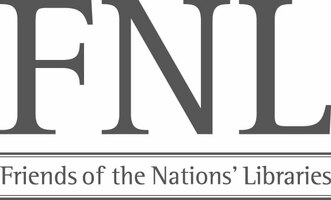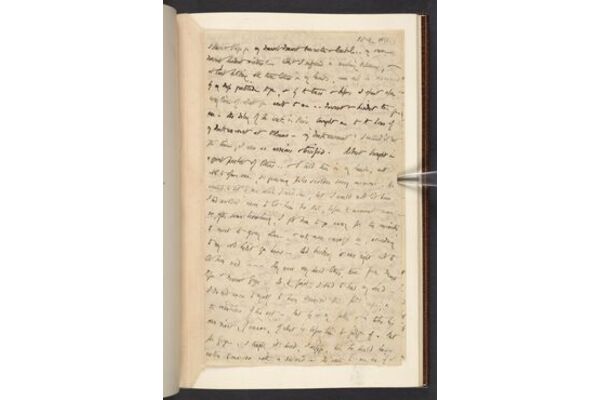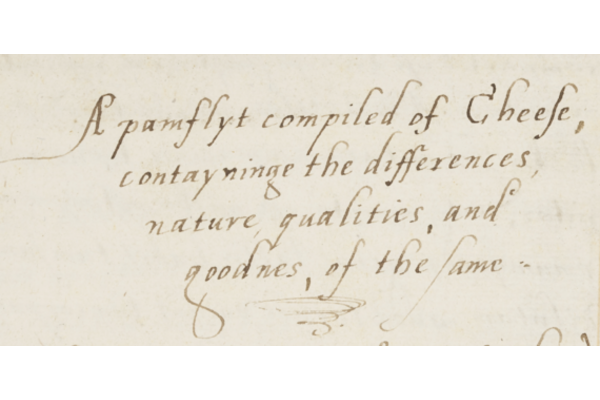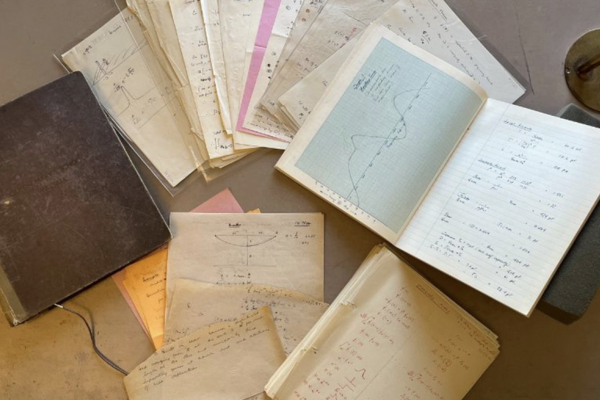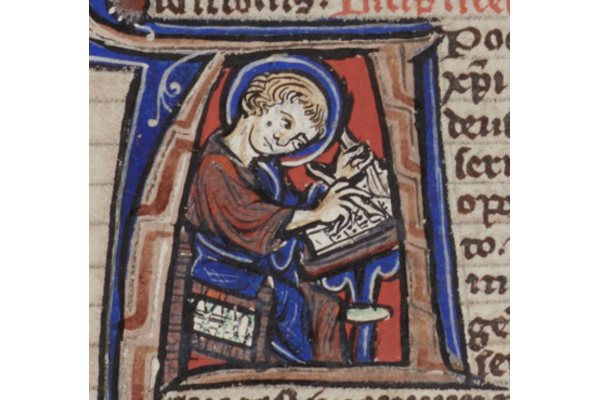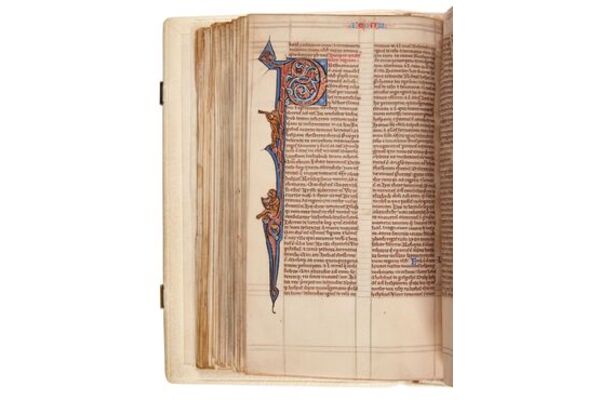
The acquisition of 160 letters from Elizabeth Barrett Browning (1806-1861) has just been announced by the the British Library. The collection was acquired in 2023 with FNL's help.
Spanning 1846 to 1860, the series of letters follow the publication of Poems (1844), for which she became well known, and cover the period in which she wrote Sonnets from the Portuguese (1850), Aurora Leigh (1856) and Poems Before Congress (1860). Eschewing the conventions of her time for female authors, Barrett Browning's work focuses on social and political issues, such as industrialisation, religious controversy and gender inequality.
The acquisition (British Library Add MS 89761) comprises:
- 119 letters (1846-1860), totalling 826 pages plus envelopes, sent from Elizabeth Barrett Browning, with three jointly addressed to her sisters, Henrietta and Arabella, and 116 solely to Henrietta;
- 10 letters (1846-1850) from Barrett Browning's husband, Robert, also to Henrietta and Arabella;
- Two letters (1855-1856) from Barrett Browning's son, known as 'Pen' Born in County Durham in 1806, Barrett Browning moved to Italy with her husband, Robert Browning, in 1846.
She lived with chronic illness for much of her adult life and her letters are extensive, each one running to several pages of closely written text, providing a wealth of detail on her personal life, as well as the genesis of her works and literary networks. Many of the letters include small pen and ink sketches hand drawn by Barrett Browning to complement and amplify her words on the page.
Highlights from the series of letters include Barrett Browning:
- Writing to her sisters (2 October 1846), shortly after she secretly married Robert Browning against her father’s will, expressing how challenging it was for her to hide their feelings and intentions Praising her husband, Robert Browning, for the 'tender patience' with which he has looked after her during a bout of illness (12 February 1855).
- Meeting with poet Alfred Tennyson and his wife in Paris, complimenting Tennyson's kindness towards her and her husband (20-21 July 1851) .
- Sketching a street procession (13 September 1847) celebrating the Grand Duke of Tuscany, Leopold II, who had granted the people of Florence permission to form a civic guard. This procession and other events of the Risorgimento, the political and cultural movement for Italian unification, would go on to inspire her poem, Casa Guidi Windows (1851).
- Expressing her surprise and amusement at allegations that her verse novel Aurora Leigh was written by spirits stating 'I disavowed any share in it except the mere mechanical holding of the pen - !!!' (10 January 1857)
- Meeting W.M. Thackeray, the author of Vanity Fair, in Rome, who she described as 'an amusing man-mountain enough and very courteous to us - but I never should get on with him much, I think - he is not sympathetical to me' (30 December 1853).
Dr Alexandra Ault, Lead Curator of Modern Archives and Manuscripts at the British Library, said: 'Elizabeth Barrett Browning is a key figure in the teaching of Victorian literature and society and her work continues to resonate with modern audiences. Barrett Browning was one of a small number of female writers who achieved prominence in Victoria Britain and this, alongside her willingness to address social and political issues in her works, makes the letters of outstanding interest for researchers today and in the future.'
